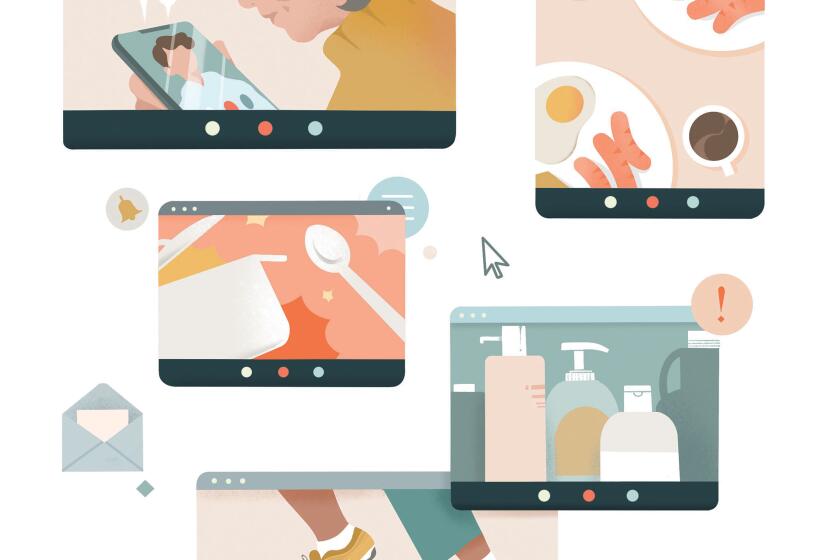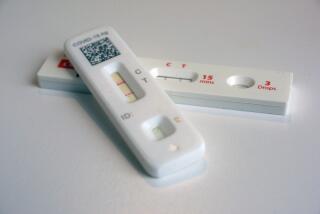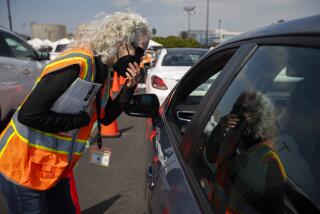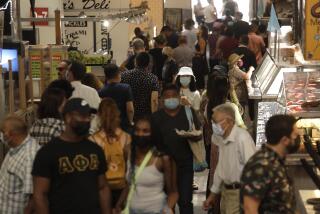Op-Ed: The second dose is magic. Within limits
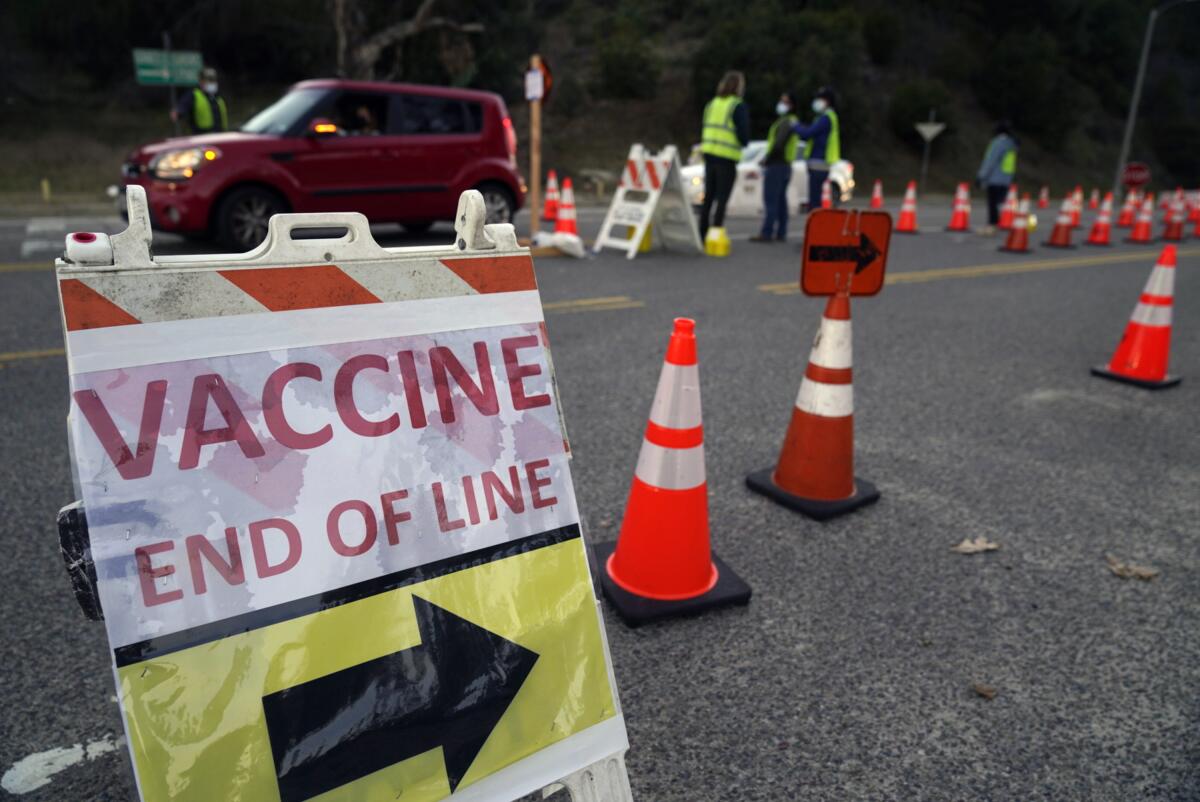
- Share via
The second dose was supposed to be my reunion pass. Thanks to COVID-19, I couldn’t get back to Connecticut for my mother’s 100th birthday at Christmastime, but once we were both fully vaccinated, I’d feel safe to fly across the country. We’d hug for the first time since 2019.
Now, I’m not so sure. I got my second dose of the Moderna vaccine early, just as alarming reports of the new California variant were emerging. Then one popped up in New York, on top of the spreader from Britain, and another from South Africa.
These strains may be resistant to the vaccine I just received. They might cause more serious illness than the original virus. Clearly, this is no time to quit wearing masks or steering clear of strangers. So is it time to travel again? What if I carried one of the new strains or picked it up en route? I could still infect my mother.
It wouldn’t be her first ill-advised reunion. Under the illusion that everyone had been “quarantining” within their “pods” for months and so were COVID-free, my Connecticut relatives gathered at Mom’s house in December to celebrate her big birthday. They wore masks. The kids and young adults kept their distance from those older than 65. But earlier, on Christmas Day, they hadn’t been so careful. Within a week of my mother’s birthday, everyone under age 65 tested positive, and several of those who got sick were bedridden for days.
In our “Dispatches From the Pandemic” series, we bring you personal stories from people whose lives have been altered by COVID-19.
Fortunately, my mother, brother and sister-in-law escaped infection, but this familial superspreader posed a serious breach of trust. And my relatives weren’t the only ones affected.
When I last visited my mother in November 2019, we hired a primary caregiver to stay with her overnight and coordinate her other aides. My mom is ferociously independent, but she’d had a rough year that included hospitalization and rehab. I’d flown coast to coast on an almost monthly basis until we found D., who was smart, funny, patient and respectful enough to treat my mother more as a friend or sister than patient. Not only did she fit right into the family, she lived around the corner. Even when D. was home, she was no more than five minutes away.
However, when she did go home, D.’s family bubble included her elderly father and her sister and brother-in-law. Our second caregiver, who spelled D. on weekends, had two teenage sons. After my mother’s birthday party, all these people had to wait and worry and wonder if they’d get sick too.
No one else did test positive, but everyone stayed nervous. All visits were suspended. Only the caregivers have entered Mom’s house since then. My brother sometimes chats with her through the dining room window. My sister-in-law procured a giant screen, and the caregivers have gotten proficient at setting us up on Zoom. My mother has wondered aloud if she’ll ever “really” see me again. And I’ve assured her that the magical second dose will allow us to kiss and catch up.
Now I’m grateful for the vaccine. It is a kind of magic, but until the whole world has been immunized, its power remains limited. My mother and her caregivers will receive their second doses soon. Two weeks later, I should be good to go, right? In the meantime, I’m checking the spread of new variants daily. I haven’t made a plane reservation, and we continue to rely on virtual hugs.
Aimee Liu’s latest novel is “Glorious Boy.”
More to Read
A cure for the common opinion
Get thought-provoking perspectives with our weekly newsletter.
You may occasionally receive promotional content from the Los Angeles Times.
